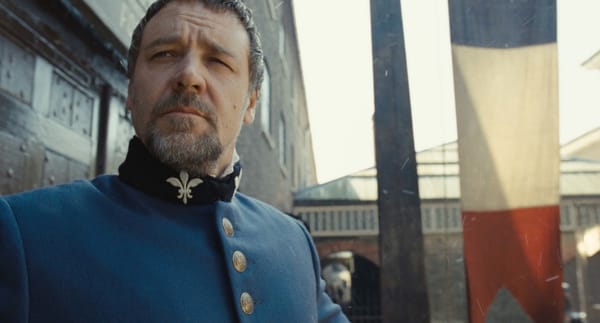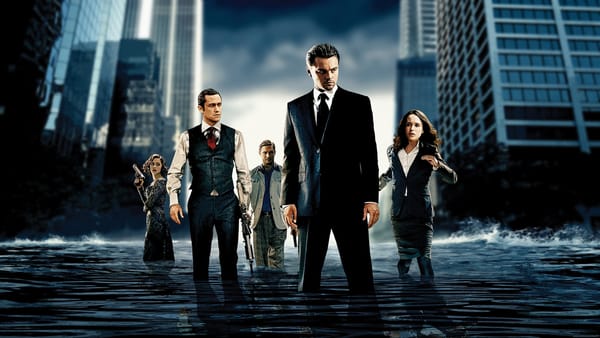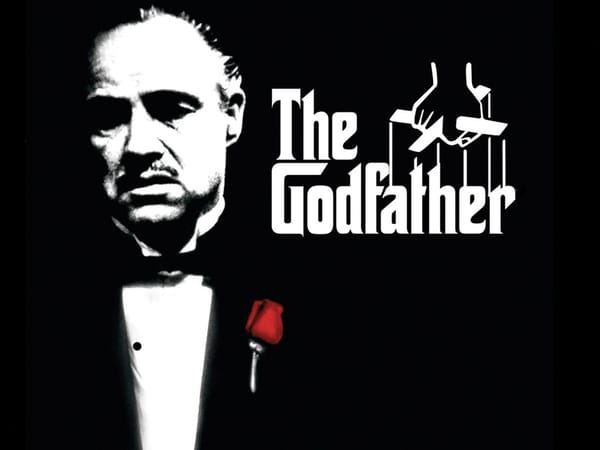No vampires or zombies in this one
Spielberg takes on Lincoln in a battle for Oscar glory
Lincoln
Director: Steven Spielberg Screenwriters: Tony Kushner, Doris Kearns Goodwin (book) Starring: Daniel Day-Lewis, Sally Field, Tommy Lee Jones, David Strathairn, Hal Holbrook, Lee Pace, Joseph Gordon-Levitt
It’s a story we all think we know so well. Abraham Lincoln, the 16th President of the United States, abolished slavery. Yay, he’s a hero and hurrah for Lincoln who remains an American icon. But Steven Spielberg is here to tell us that it wasn’t a simple task by any means. Passing the 13th Amendment in the last few months of his Presidency, Lincoln achieved a milestone in American politics banning slavery outright – that’s the end result. But what came beforehand was a whole heap of ups and downs that threatened its smooth course. For international audiences not familiar with the details and intricacies of the event, Lincoln can seem a daunting, information-heavy movie experience. But here is a film so well crafted, cleverly written and brilliantly acted that it forms as much as it entertains. Essentially this is a film where we see a lot of talking, between important individuals behind closed doors, but how Spielberg keeps every single minute of it all so fascinating is a real wonder.
One of the best, most deservingly respected and admitted actors of our generation, Daniel Day-Lewis, steps into the role of Lincoln. And it’s in his cool, dignified and surprisingly witty interpretation of the character that we are immediately drawn into the drama of his tumultuous months. Delicately finding the balance between the many different aspects of his role, his leadership position as the President of his nation, as well as the more private, family-oriented side as a husband and grieving father, Day-Lewis once again shows there is virtually no limit as to what he can achieve. His performance is a deeply moving and affecting one, in his tight, rigid, tall frame, with his soft-spoken, eloquent voice, drifting from one scene to another, always grounded, concentrating in his many thoughts, and yet remaining entirely accessible to everyone watching him.
Politics has never been this exciting or gripping, and courtroom-style scenes have never been this overwhelmingly fun to watch. Of course, when Lincoln proposes this Amendment, there is as much support as there is harsh criticism. Within his own Republican Party, Lincoln manages to secure enough support, mostly thanks to Francis Preston Blair (Holbrook), a highly influential member who can guarantee support from the conservative Republicans. The catch with Blair is that he’s keen to start the peace talks between the Union and the Confederacy, hoping to end the Civil War that is destroying America. Peace is never a bad thing, especially when so many lives have been lost, but complicating matters is that Lincoln will no doubt lose a certain level of support for the Amendment should the War end before it is actually passed. If there is a real chance the War will end without this new Amendment passing, a lot of people will just not bother. This puts Lincoln in a precarious position of having to hold off on the peace talks as long as possible, whilst getting a move on with gathering enough votes.
Unafraid to voice their opposing views is the Democratic Party, led by Congressman Fernando Wood (Pace) who is vehemently against these changes. End of slavery would inevitably lead to racial equality, and this is something even most members in the United States House of Representatives (all white) aren’t willing to accept. So Lincoln must again walk a fine line between pushing his anti-slavery agenda whilst keeping it clearly separate from further racial issues. Another hiccup here – a vocal supporter for the Amendment, Radical Republican Congressional leader Thaddeus Stevens (Jones), again quite the influential man in the government, is a staunch supporter of racial equality. If this Amendment has any chance of passing, Stevens needs to keep a lid on his enthusiastic views, to not lose anyone already on board.
Having to win with a majority, it’s not enough just to have the backing of his own party. He needs to convince the Democrats, and in order to do so he needs to step into the rather dirty pool of politics – quietly promising federal jobs to persuadable Democrats for their votes. And so begins some intense lobbying, headed by William N. Bilbo (James Spader) and his fellow lobbyists Richard Schell (Tim Blake Nelson) and Robert Latham (John Hawkes). A lot of comedy ensues here, as not all of their attempts are entirely successful. Who says a two-and-a-half-hour-long political drama can’t be funny? And it’s not just the politics keeping Lincoln busy: his family life is also given its share of meaty running time. His wife, Mary Todd (Sally Field), often suffering from terrible migraines and still reeling from the loss of their son, provides support although she herself sometimes requires some hand-holding of her own. More so when their eldest son, Robert Todd (Gordon-Levitt), upon returning home from his studies at Harvard Law School, announces that he wants to join the fight in the Civil War. Abraham respects his grown son’s wishes, almost appearing uninterested, whereas Mary Todd, at the thought of losing another one of her children, cannot believe her husband’s shockingly relaxed response. Already emotionally unstable, this pushes Mary over the edge, leading to a heated argument between the couple, which provides one of the film’s finest scenes in which these two outstanding actors have at it with their built-up fiery emotions.
Spielberg reportedly spent almost twelve years in preparation for this movie, and it shows in his meticulous structure and authentic-looking sets, as well as the general atmosphere he places his actors into. Everywhere is appropriately dampened down with wooden furniture, smoke-filled and, when required, in complete and utter chaos, most notably in the House of Representatives, where hot-headed individuals mouth off and start attacking one another. There are plenty of elaborate set decorations and designs to marvel at, and the technical achievements are extremely vast. There are lots of facts to be relayed to the audience – everything needs to ultimately make sense, and we must understand why various characters are doing what, with what intentions. And nothing could be made clearer in Tony Kushner’s script. It is immediately clear that Lincoln had to go to great lengths to gain enough support, perhaps venturing into places he may not have been most comfortable with. Heatedly arguing, smartly bribing, calmly persuading, raising his voice (although very rarely), he’s had to do it all, and the many fragile complexities that could either make or break the ambitious plan are told to us in a very logical step-by-step manner that all the dense material is told competently, whilst not confusing the hell out of anyone.
Then there is the cast – the phenomenal cast in roles both big and small who shine in every supporting part there is. Sally Field is typically strong, sturdy and feisty, Tommy Lee Jones has a lot of fun arguing his way against his opposing party (both actors thoroughly deserving their Best Supporting Oscar nominations) and Lee Pace provides the healthy opponent. Another stand-out is David Strathairn, as Secretary of State William H. Seward, a loyal friend and trusted advisor to the President, who stands by him as Lincoln faces one of the toughest, most unpredictable times of his Presidency.
What an incredible feat Spielberg has accomplished here – it’s a film that is both intelligent and wholly comprehensible, an utterly enjoyable experience from start to finish, based on the unlikeliest subject matter.








